THE STATE OF VACCINE CONFIDENCE IN THE EU WAS A PULSE THEY TOOK IN 2018 THROUGH A COMMISSIONED EU STUDY
The first thing I want to note, is the state of the ‘Bar’ that challenges Deep State, the Municipal deep State, the technocrats et al. In all developed areas of the law there are usually two bars. For instance: there is the Criminal Defence and the Prosecution. They go the same lunch and learns and know each other. There is Insurance Defence and Plaintiff Insurance work. Again, they go to the same Continuing Professional Development courses and know the whos who.
Now onto the lawyers working for who is taking over the world. There must be millions. This bar is quiet. It sets about studiously making over our by-laws, professional bodies, our administrative state, our international law, our patents, etc etc. In response there are literally handfuls of lawyers in any given country mounting a defence to these intrusions.
There are no lunch and learns like
‘ what are the technocrats up to now?’ with subject courses like:
which by-laws are coming in to enable the funding of your open air prisons by the smart city infrastructure fund? or
Do you know how the OECD sets out the laws your country needs to take up on AI to enable bio-digital convergence? AND
What are the satellite offices of the WHO and how do these insure that the vaccine purchase agreements go through. AND
What kind of contract provisions do you need in pharma agreements to screw over the vaccine injured;
how to rape citizens privacy and make the city councillors do it;
etc etc.
Whenever I examined any area of the law I realized my ‘opponent’ was well funded, was on a multi-year well funded team and were replicated across the globe. And I noticed how few lawyers had any scalable knowledge on the totality of what was taking place. there was as it were, no balanced bar in this area of the law.
I am becoming a distinct subject matter expert on a scale that few people understand in the modern mechanistic operation of the ‘law’. In fact my readers, and other substack readers have a greater sense of the evolving issues then many who practice as lawyers.
This must be rectified of course. But when you think of the ‘planning’ involved in lock downs, or narrative, or mandates etc., think that lawyers meticulously set about to insure this success. This lens is going to be part of my analysis overtly or through nudging.
2018-19 EU-WHO “Global Vaccination Summit”
2018 saw EU reports on State of Vaccine Confidence
Table of Contents
1 Executive summary...................................................................................................... 6
2 Introduction.................................................................................................................. 8
2.1 Report overview................................................................................................. 10
3 Vaccine confidence surveys in the EU.................................................................... 12
3.1 The public ........................................................................................................... 13
3.2 General practitioners......................................................................................... 14
4 Public vaccine confidence in the EU....................................................................... 15
4.1 EU-wide vaccine confidence............................................................................. 15
4.2 Vaccine confidence by member state.............................................................. 16
4.2.1 General perceptions towards vaccine importance, safety, and effectiveness
16
4.2.2 The MMR vaccine ........................................................................................... 16
4.2.3 The seasonal influenza vaccine...................................................................... 17
4.3 Changes in public confidence between 2015 and 2018................................. 20
4.4 Socio-economic determinants of public vaccine confidence ....................... 23
4.4.1 Regression methodology................................................................................ 23
4.4.2 EU-wide trends ............................................................................................... 24
4.4.3 Country-specific socio-economic determinants ............................................. 27
Table of Contents
1 Executive summary...................................................................................................... 6
2 Introduction.................................................................................................................. 8
2.1 Report overview................................................................................................. 10
3 Vaccine confidence surveys in the EU.................................................................... 12
3.1 The public ........................................................................................................... 13
3.2 General practitioners......................................................................................... 14
4 Public vaccine confidence in the EU....................................................................... 15
4.1 EU-wide vaccine confidence............................................................................. 15
4.2 Vaccine confidence by member state.............................................................. 16
4.2.1 General perceptions towards vaccine importance, safety, and effectiveness
16
4.2.2 The MMR vaccine ........................................................................................... 16
4.2.3 The seasonal influenza vaccine...................................................................... 17
4.3 Changes in public confidence between 2015 and 2018................................. 20
4.4 Socio-economic determinants of public vaccine confidence ....................... 23
4.4.1 Regression methodology................................................................................ 23
4.4.2 EU-wide trends ............................................................................................... 24
4.4.3 Country-specific socio-economic determinants ............................................. 27
6.1 Seasonal influenza............................................................................................. 42 6.2 MMR.................................................................................................................... 43 6.3 Changes in confidence since 2015.................................................................... 43 6.4 GP vaccine confidence ...................................................................................... 46 6.5 Limitations.......................................................................................................... 46 6.6 Concluding remarks .......................................................................................... 47 7 Bibliography............................................................................................................... 49 8 Appendices................................................................................................................. 51
https://health.ec.europa.eu/document/download/33a4fe95-8f09-4901-a011-805d7ad181e3_en
So they designed and ran a survey regarding vaccine confidence:
“The Vaccine Confidence ProjectÔ has developed a four-question core survey (the
Vaccine Confidence IndexÔ) to measure confidence in vaccines across four dimensions:
the perceived importance, safety, and effectiveness of vaccines, and their compatibility with the subjects’ religious beliefs.
In 2015, this questionnaire was deployed on nationally representative samples (in the same way as described in Section 3.1) to almost 70,000 individuals across 67 countries (Larson, 2016). This four-question survey asked respondents the extent to which they agree (strongly agree, tend to agree, do not know (or no response), tend to disagree, or strongly disagree) to the following statements:
1. Overall, I think vaccines are important for children to have;
2. Overall, I think vaccines are safe;
3. Overall, I think vaccines are effective; and,
4. Vaccines are compatible with my religious beliefs.
This four-question “core” survey is here extended to explore individuals' perceptions on the importance and safety of both the MMR and seasonal influenza vaccines. Respondents are therefore also asked the extent to which they agree with the additional four statements:
5. Overall, I think the MMR vaccine is important for children to have;
6. Overall, I think the MMR vaccine is safe;
7. Overall, I think the seasonal influenza vaccine is important; and,
8. Overall, I think the seasonal influenza vaccine is safe.”
The public and GPs are asked the above eight survey questions. In addition, to probe recommendation patterns, GPs are asked the extent to which they would recommend the MMR and seasonal influenza vaccine to patients, and the extent to which they would recommend the seasonal influenza vaccine to pregnant women:
1. How likely are you to recommend the MMR vaccination to patients?
2. How likely are you to recommend the seasonal flu vaccine to patients? and,
3. How likely are you to recommend the seasonal flu vaccine to pregnant women?
These survey questions are summarised in Fig. 2”
3.1 The public
A total of 28,782 respondents were surveyed across the 28 EU member states by ORB3 in conjunction with Gallup International4 and the King Baudouin Foundation5. Nationally representative samples for each member state are obtained by obtaining distributions of sex, age, and sub-national region which matches national demographics. Under- and over-sampled groups are proportionately weighted to match these national demographics. An EU weighting is also calculated for each individual which allows unbiased EU-wide confidence summaries to be computed: for example, individuals from countries with larger populations are assigned more weight than those with smaller populations.
Approximately 1,000 respondents were sampled in each member state, though there was slight variation around this figure based on availability. For example, only 530, 500, and 970 respondents were interviewed in Luxembourg, Malta, and Finland (respectively), but every other member state had at least 1,000 responses (see Appendix B, Table 7). The average sample size across all member states was 1,028. Surveys were completed online in all but seven member states: face-to-face surveys were conducted in Finland and Latvia, and telephone surveys were used in Croatia, Cyprus, Hungary, Malta, and Romania. Fieldwork took place between 3 May and 7 June 2018. (See Appendix B, Table 7 for further methodological details.)
3.2 General practitioners
A total of 1,000 GPs were surveyed from ten EU member states (approximately 100 GPs in each member state, see Appendix B.2): Czech Republic, Estonia, France, Germany, Italy, Poland, Romania, Slovakia, Spain and the United Kingdom. This sample of GPs was randomly drawn from a panel of 227,658 doctors in both private and public sectors across the ten countries. About half of these interviews were conducted online and half via telephone between the 1 and 18 June 2018. A lack of official statistics on GP populations across doctors inhibited nationally representative samples of GPs. (See Appendix B, Table 8 for further methodological details.) (GP surveys have been completed in ten EU member states only, due to the unavailability of GP panels in some countries, we are currently exploring other avenues of data collection.)
In addition to the eight vaccine confidence questions and three vaccine recommendation questions, auxiliary information on a GPs age, gender, and years in profession were collected.”
If they were going to hunt the profession for non-compliance this data would be relevant.
Please note we are witnessing a war on those with religious beliefs. Imagine that they felt they needed to know how much religious beliefs formed a basis for resistance. If you look at the strongly disagree dark blue tabbing above it is most pronounced on ‘vaccines are compatible with my religious beliefs’ and ‘the seasonal influenza vaccine is important’.
well that vaccine needed a rebrand! Clearly the SEASONAL INFLUENZA VACCINE was not going to make it into arms in sufficient quantities.
4.2.1 General perceptions towards vaccine importance, safety, and effectiveness
Portugal has the highest percentage of respondents agreeing that vaccines generally are safe (95.1%), effective (96.6%), and important for children to have (98.0%) (Table 2). Finland has the second highest percentage of respondents agreeing that vaccines are important for children (97.6%), but the sixth highest percentage of respondents agreeing that vaccines are safe (89.0%) after Portugal (95.1%), Denmark (94.0%), Spain (91.6%), Hungary (91.4%), and the UK (89.9%). (See also Fig. 4 a-c.) Respondents from Bulgaria are least likely to agree that vaccines are safe, with only 66.3% agreeing that they are, followed by Latvia (68.2%) and France (69.9%). Bulgaria (78.4%), Poland (75.9%), and Slovakia (85.5%) are the three countries least likely to agree that vaccines are important for children to have. Portugal again has the highest percentage of respondents agreeing that vaccines are effective (96.6%) followed by Denmark (94.6%), Spain (94.0%), and the UK (92.0%). Latvia has the least highest percentage of respondents agreeing that vaccines are effective (70.9%), followed by Bulgaria (72.7%) and Poland (74.9%).
They were literally running their SAFE AND EFFECTIVE CAMPAIGN through a poll to see where the messaging needed work.
“5.1 Country-level trends in GP confidence
5.1.1 GP confidence on vaccine importance, safety, effectiveness, and religious compatibility GP responses to the eight vaccination confidence survey questions to which the public were also surveyed on are shown in Table 4. The number (and percentage) of GPs agreeing (strongly agree or tend to agree) with the survey questions are shown with the country's ranking relative to others.
The survey suggests that GP confidence is generally very high: we find that GPs in France, Germany, Romania, Spain, and the UK have at least 85% of GPs agreeing with each survey statement and we find that GPs in Romania, Spain, and the UK have particularly high confidence in vaccines, consistently ranking within the top three across most survey questions.
In Czech Republic, 71% of GPs agree that the MMR vaccine is important for children to have, and only 63.6% believe that MMR is safe: these values are lower than the general public (and is the only country for which GP confidence is lower than that of the public) – this is discussed further in Section 5.2. In Slovakia, there are also considerable importance and safety concerns regarding the MMR vaccine (but not vaccines generally): 19% of GPs in Slovakia do not agree the MMR vaccine is important for children, and 24.5% of GPs do not believe the MMR vaccine is safe. Although low, confidence among GPs is higher than the general public (Section 5.2) suggesting that improvements to GP confidence in the MMR vaccine may elevate public confidence.
11 Surveys have been completed in ten EU member states but, due to the unavailability of GP panels in some countries, we are currently exploring other avenues of data collection in the other 18 member states à35
A large number of GPs surveyed in Czech Republic (29%) and Slovakia (19%) do not believe the seasonal influenza vaccine is important, while 36.4% of GPs in Czech Republic and 24.8% in Slovakia do not believe the seasonal influenza is safe. In Estonia, Italy, and Poland religious compatibility concerns are high: 19%, 20%, and 29% of GPs surveyed (respectively) do not agree that vaccines are compatible with their religious beliefs.”
The GP is groomed.
“6.4 GP vaccine confidence
This survey also explored GPs' confidence in vaccination in ten EU countries and found that overall, GPs are confident in the safety, importance and effectiveness of vaccination and have higher levels of confidence than the general population. While these findings are reassuring and confirm results from other studies that only a minority of healthcare professionals have concerns about vaccines (Karafillakis E. a., 2016; Paterson, 2016), confidence of GPs in MMR vaccination is lower in certain countries in the survey, particularly in Eastern Europe. Czech Republic and Slovakia are two countries where findings shoed particularly low levels of confidence in the importance and safety of MMR vaccination, and where GPs would hesitate to recommend the vaccine to their patients.
The Czech Republic is also the only country in Europe where GPs were found to have lower levels of confidence in the importance and safety of MMR vaccination than the country's citizens. Additionally, while the safety, importance and effectiveness of seasonal influenza vaccination was generally well perceived by GPs across Europe in the study, GPs in many Eastern European countries would choose not to recommend the vaccine to pregnant women.
This could be linked to differences in national recommendations with regards to pregnant women and an associated lack of awareness but needs to be evaluated further. More research is needed on Eastern European healthcare professionals' views about vaccines.
The findings from this survey certainly warrant the need for more evidence to further explain reasons for their low levels of confidence. Eastern European countries have a shared history and their vaccination programmes, often mandatory, have been strongly influenced by times under communist leadership.
A better understanding of the influence of historical and political contexts in European Europe on confidence in vaccination among GPs but also the general public is therefore essential.”
the Pandemic?
The vaccines?
nothing was left to chance. Not your GPs response. Not your religious inhibition. Not your views on ‘safety, effectiveness' or jabbing pregnant mothers or jabbing young children.
Plotted. wasn’t it.



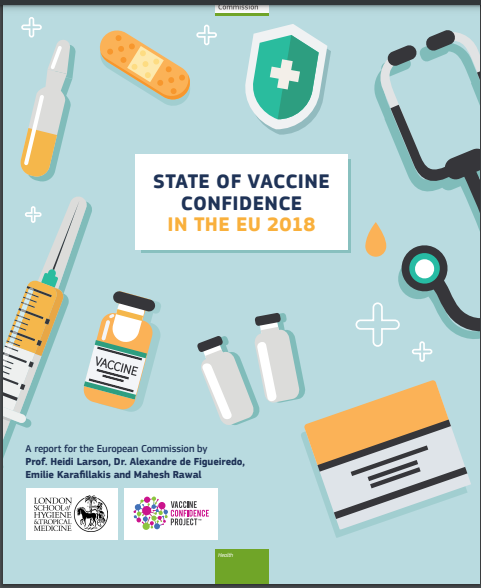
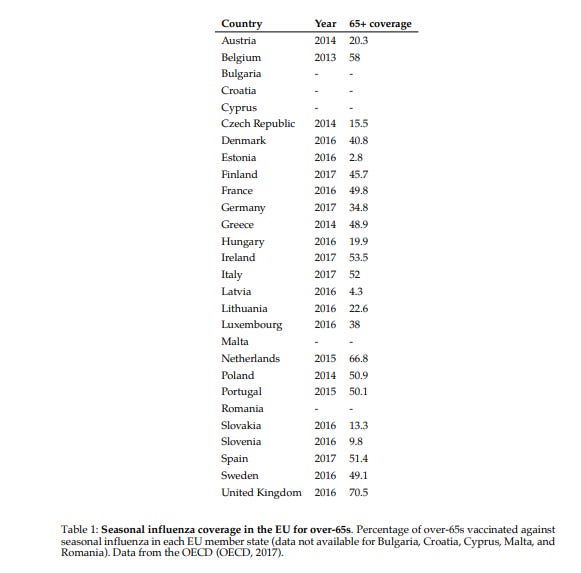
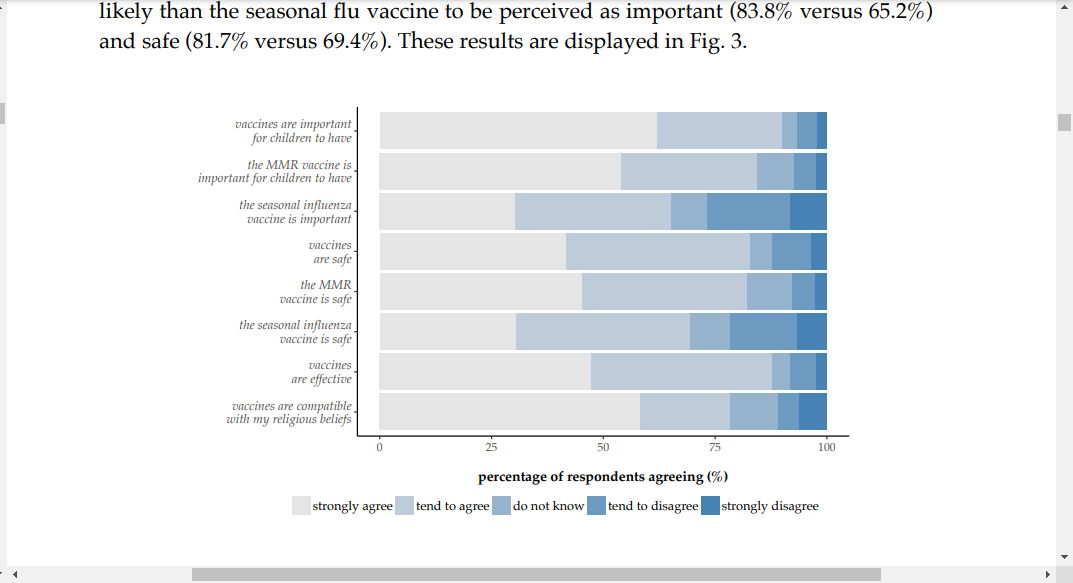
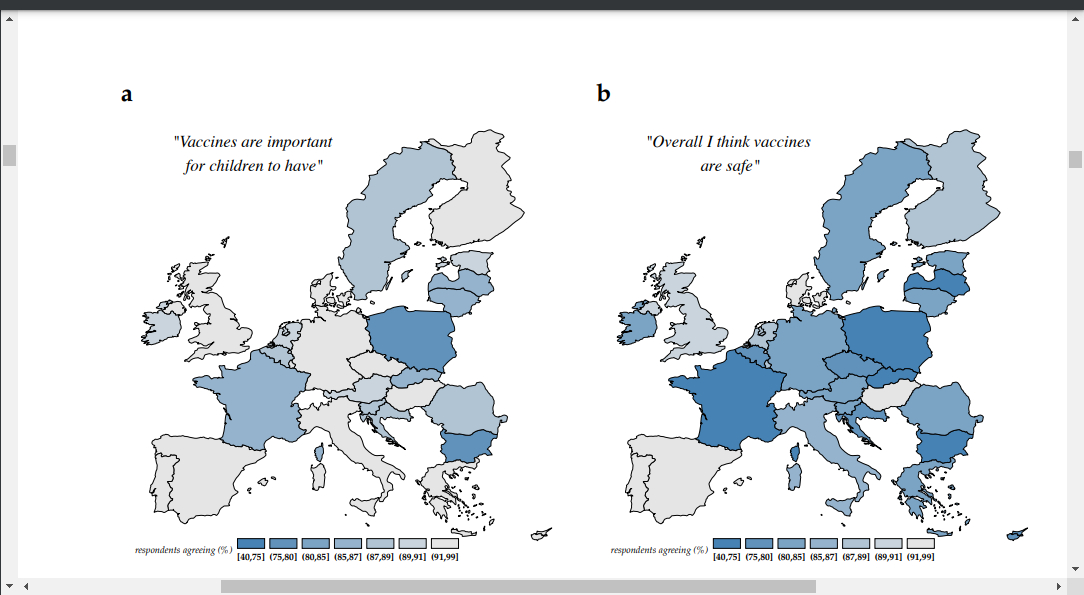
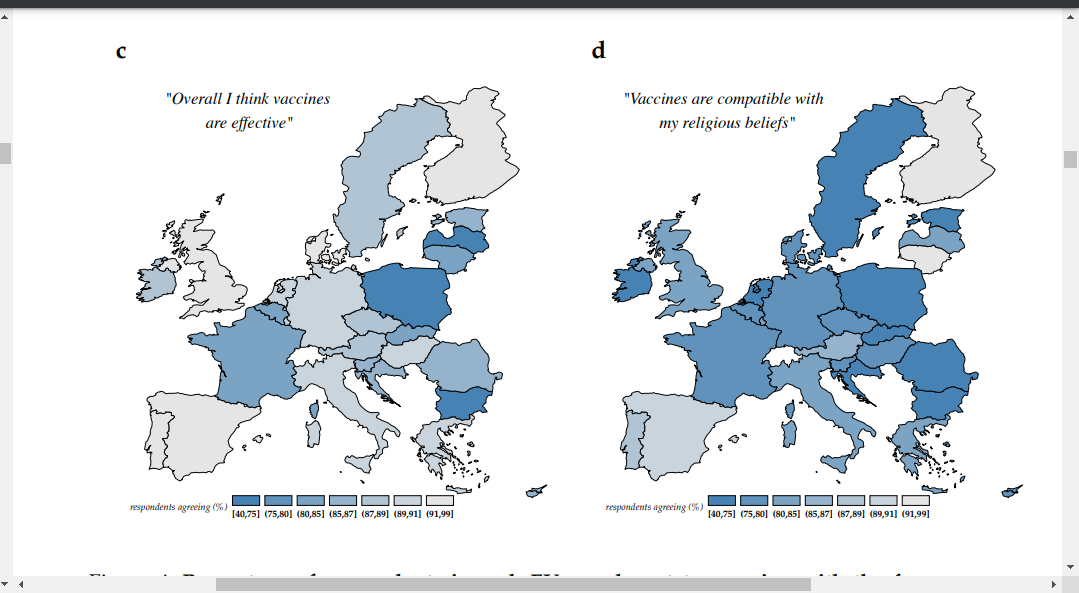
Sounds like a legal Manhattan Project over centuries. The Matrix designed to ensnare us on every level.
I removed myself from registration with so-called doctors surgery four years back. They are all in the same 'club' and none of them dare speak for fear of losing their worthless corrupt career.